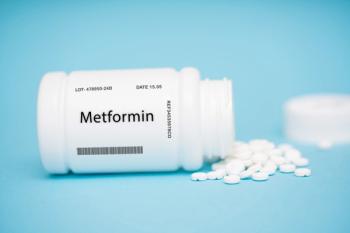
AI-Designed Drug for IPF Gets Name, Fares Well in Early Trials
An AI-designed drug for idiopathic pulmonary fibrosis (IPF) created by Boston-based biotech firm Insilico Medicine, has been granted an official name by the United States Adopted Names (USAN) Council.
The former ISM001-055 is now called Rentosertib and becomes the first drug in which both the target and the compound were identified through generative AI, representing a significant breakthrough in AI-driven drug development.
“The name Rentosertib is especially meaningful to us, as it not only honors [co-founder] Dr. (Feng) Ren’s contributions but also highlights the essential interplay between human scientific expertise and artificial intelligence in driving this innovative program forward,” Alex Zhavoronkov, co-founder and CEO of Insilico Medicine, said in a company release announcing the news.
Insilico Medicine’s research started with PandaOmics, an AI-driven biology engine that analyzed extensive datasets and identified TNIK (TRAF2 and NCK-interacting kinase) as a promising target for the treatment of IPF. Subsequently, the platform’s generative chemistry engine, Chemistry42, was employed to design and optimize small-molecule compounds that target TNIK, ultimately resulting in Rentosertib being nominated as a preclinical candidate.
This AI-driven method greatly expedited the drug discovery process, shortening the timeline from target identification to preclinical candidate selection to just 18 months. These results represent a significant advancement in the efficiency of pharmaceutical research.
To date, Rentosertib has advanced through a number of clinical trials with encouraging outcomes. In two phase 1 trials conducted in New Zealand and China, the drug was administered orally to healthy participants and demonstrated a favorable safety, tolerability and pharmacokinetics profile. These results led to its transition into Phase II trials.
A phase 2a clinical trial that followed focused on IPF patients over a 12-week period. Rentosertib met its primary endpoint of safety and tolerability at all dosage levels. Furthermore, positive results were observed for the secondary efficacy endpoint, showing a dose-dependent improvement in lung function. Patients receiving the highest dose of 60 milligrams daily exhibited a mean improvement of 98.4 milliliters (mL) in forced vital capacity (FVC) from baseline, while the placebo group experienced a mean decline of -62.3 mL. Improvements were also recorded in quality-of-life measures such as cough reduction and overall respiratory symptoms at the highest dose.
Now, with these positive phase 2a results and the official naming by USAN, Insilico Medicine is engaging with global regulatory authorities to initiate larger pivotal trials.
According to Zhavoronkov, Insilico Medicine will look to further evaluate Rentosertib’s efficacy and expedite its path to regulatory approval. If successful, the drug could become the first AI-discovered therapy to reach patients, potentially transforming the treatment landscape for IPF.
IPF is the most common type of pulmonary fibrosis. It is characterized by scarring in the lungs that stiffens the lungs and makes it difficult to breathe. Although the exact IPF etiology remains unknown — “idiopathic” mean unknown — researchers have documented associations with cigarette smoking, genetic mutations and viral infections (Epstein-Barr virus and hepatitis C), according to an article published last month in the Centers for Disease Control and Prevention’s Morbidity and Mortality Weekly Report (MMWR). Studies have also linked IPF to occupational exposures to pesticides and to wood (pine) and metal (brass, lead, and steel) dust, according to the MMWR article.
Insilico is financed with more than $400 million from private equity firm Warburg Pincus and Facebook co-founder Eduardo Saverin, among others, according to MIT Technology Review. In March, the company announced that it had received $110 million in Series E financing led by a private equity fund of Hong Kong-based
Newsletter
Get the latest industry news, event updates, and more from Managed healthcare Executive.























